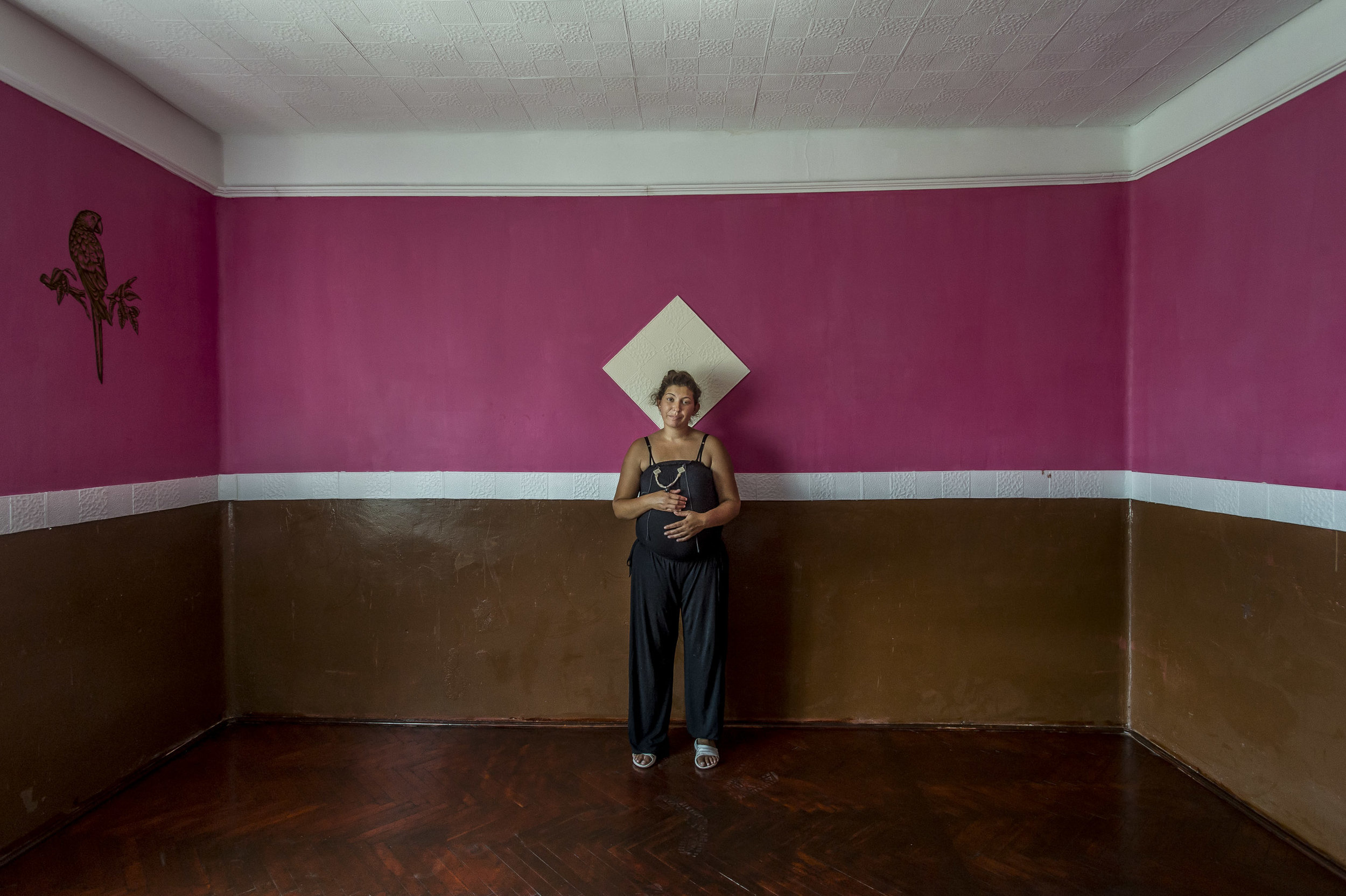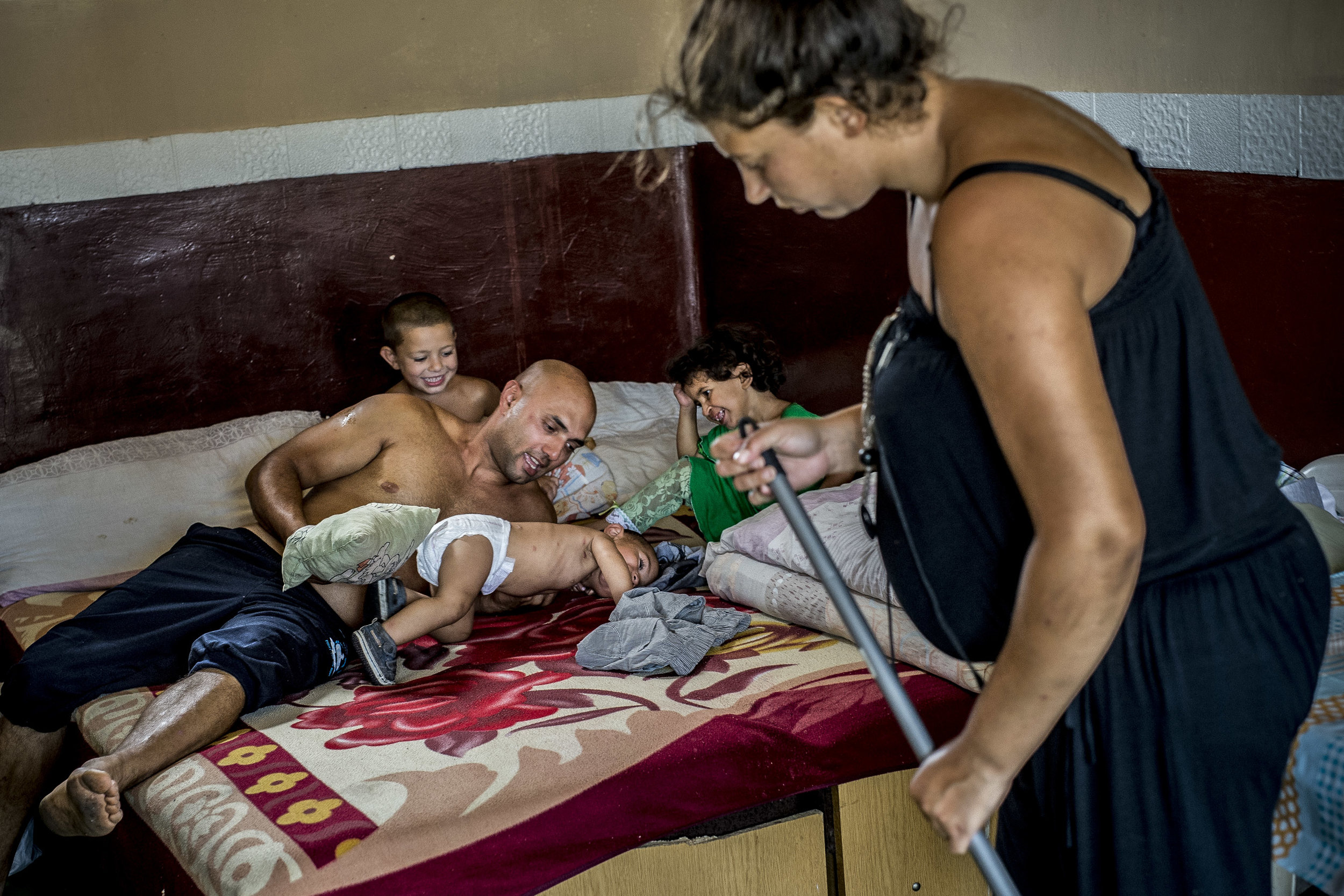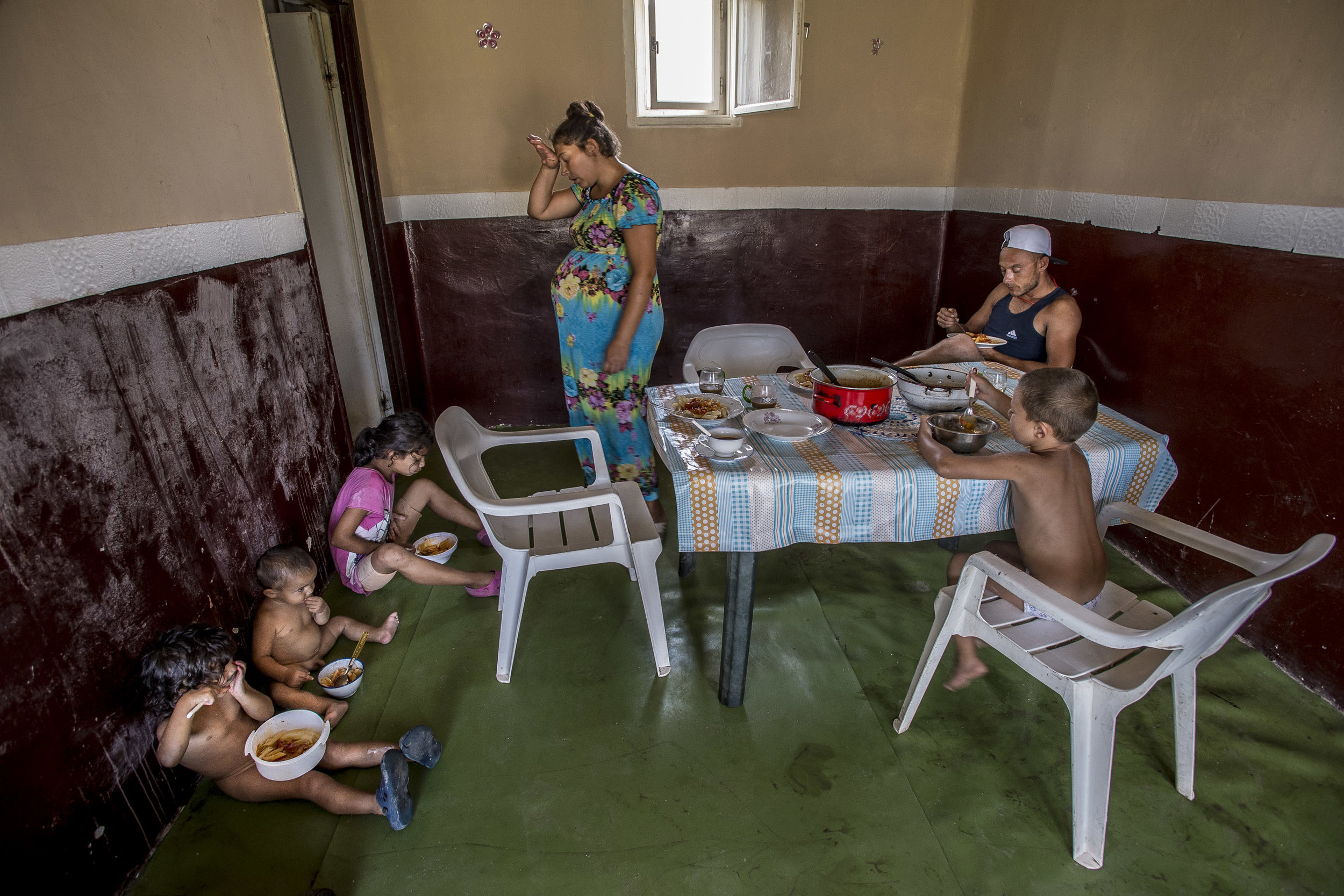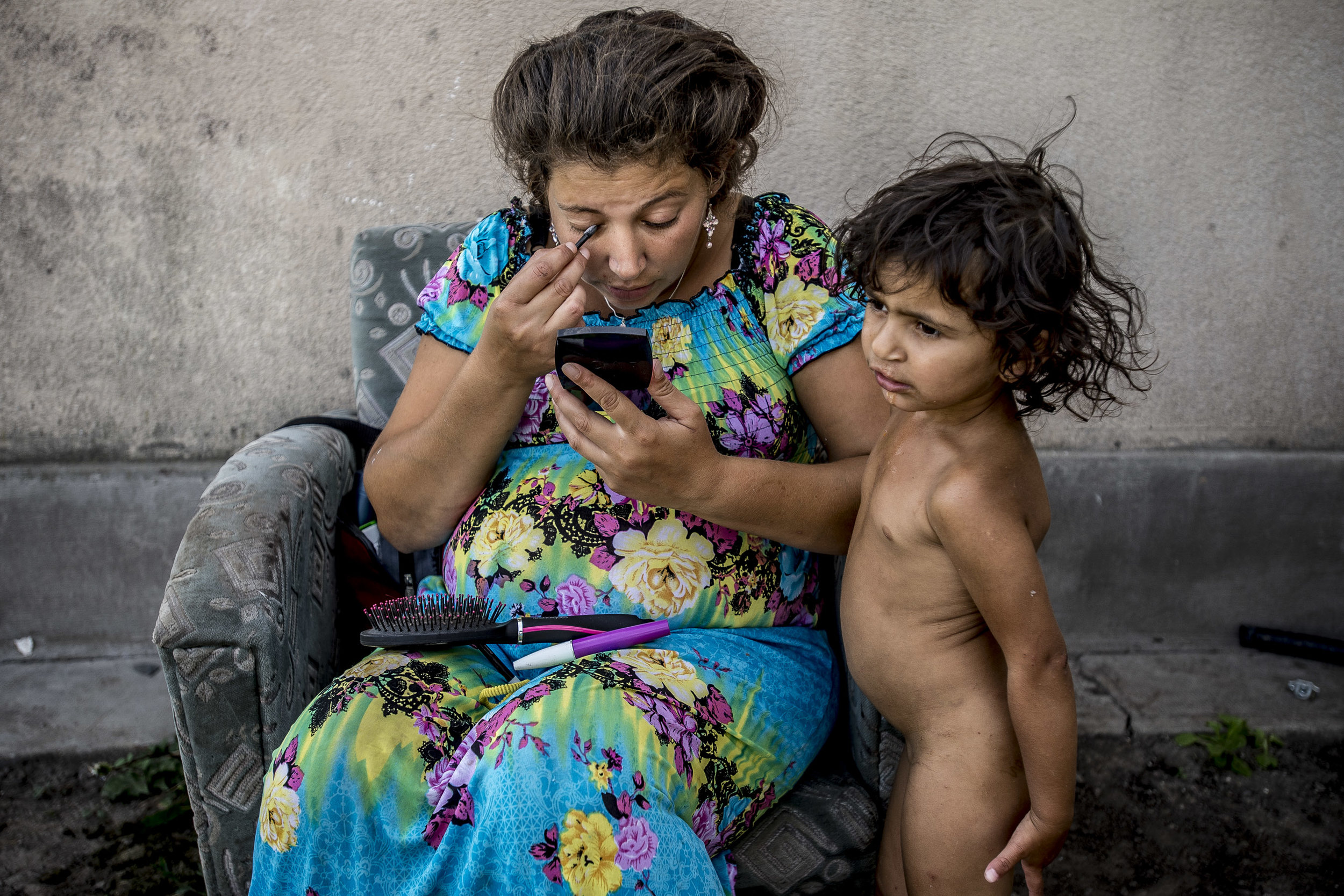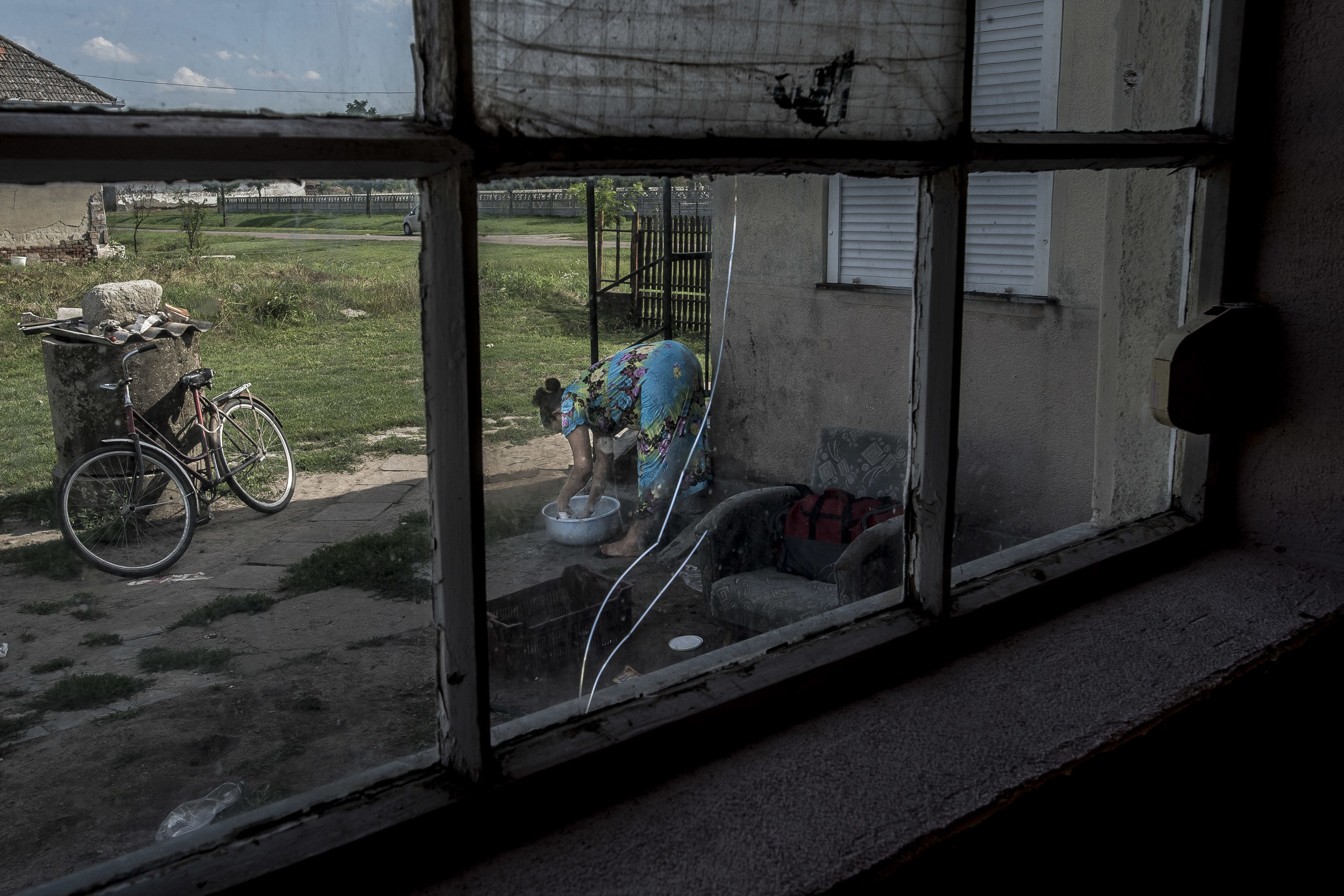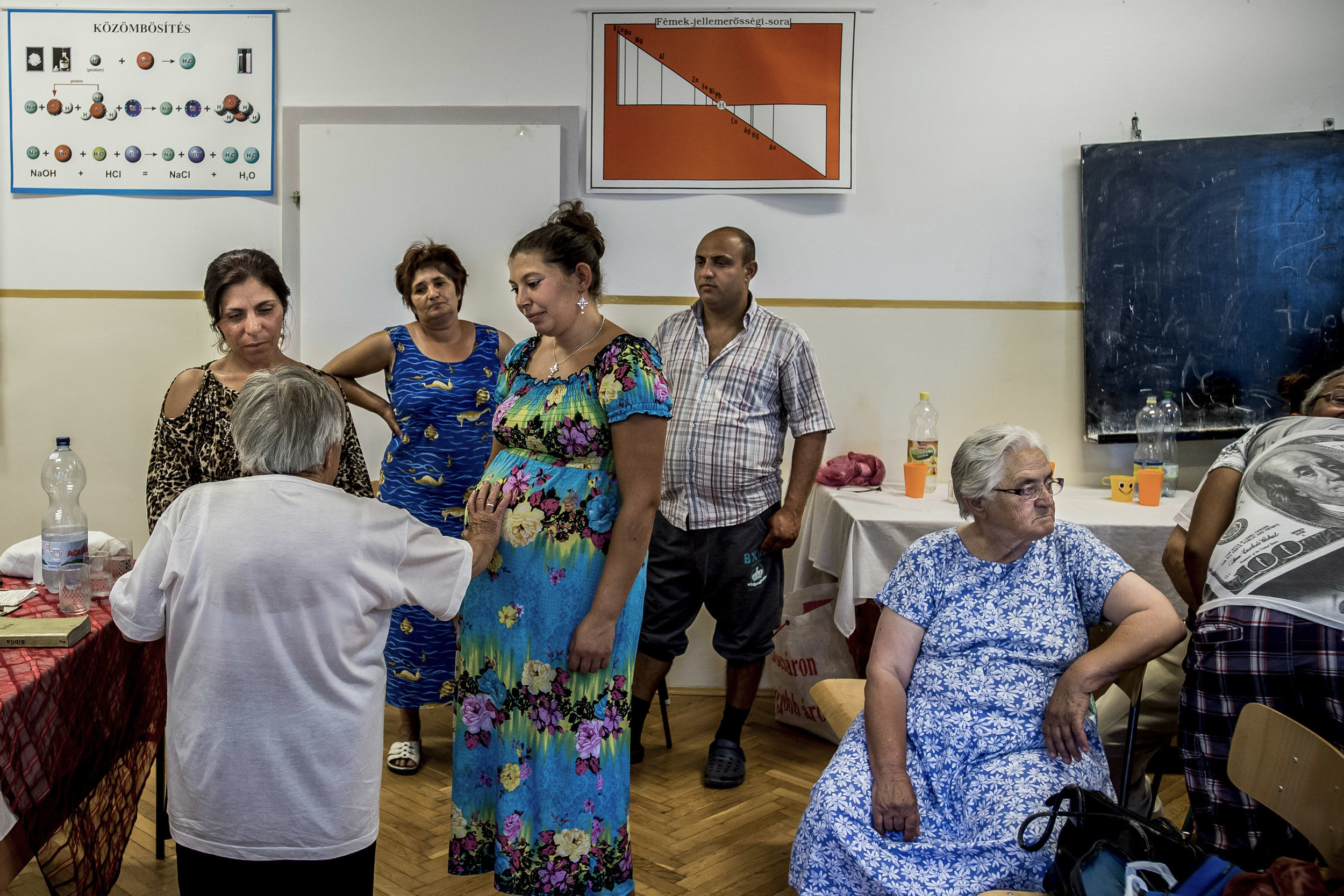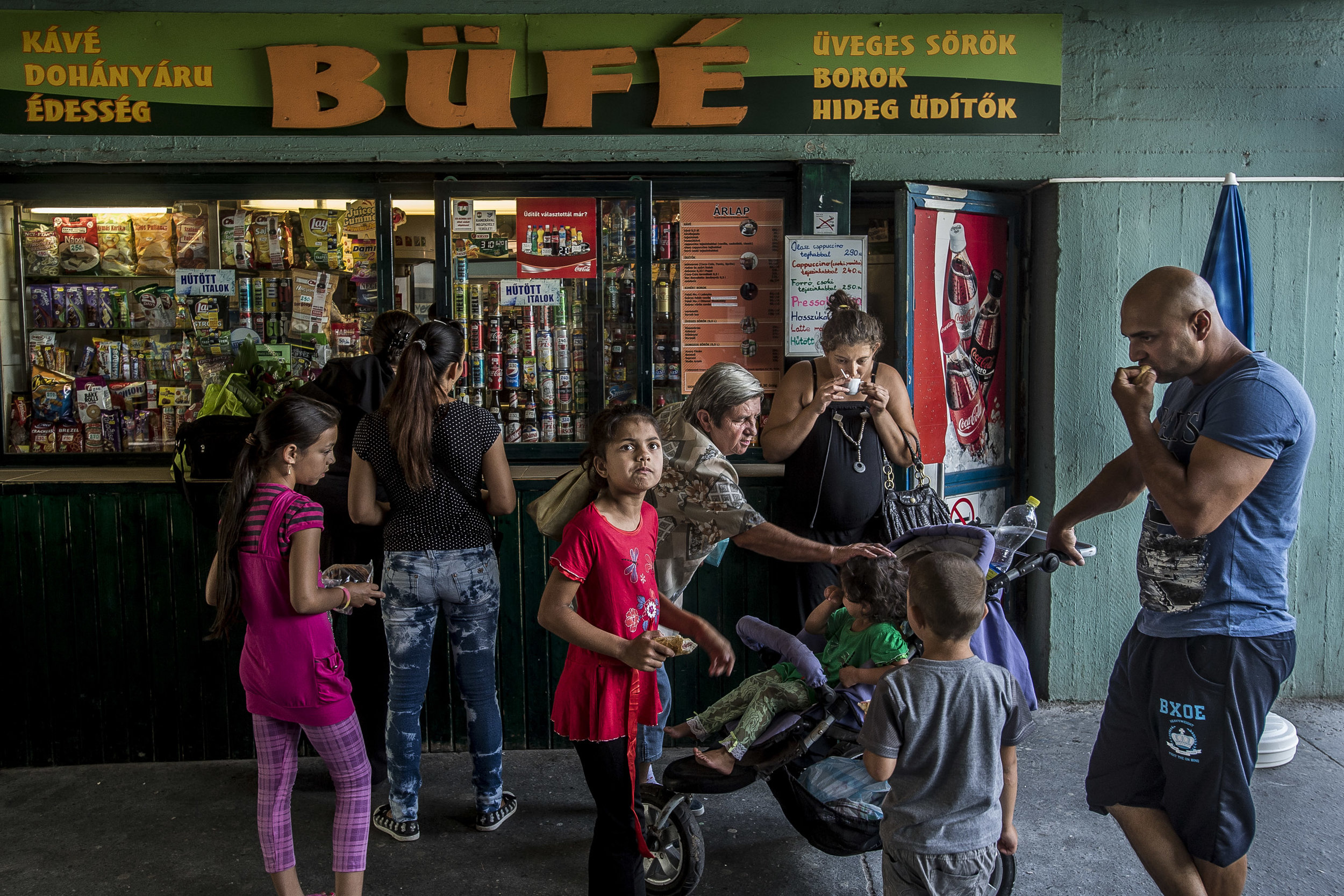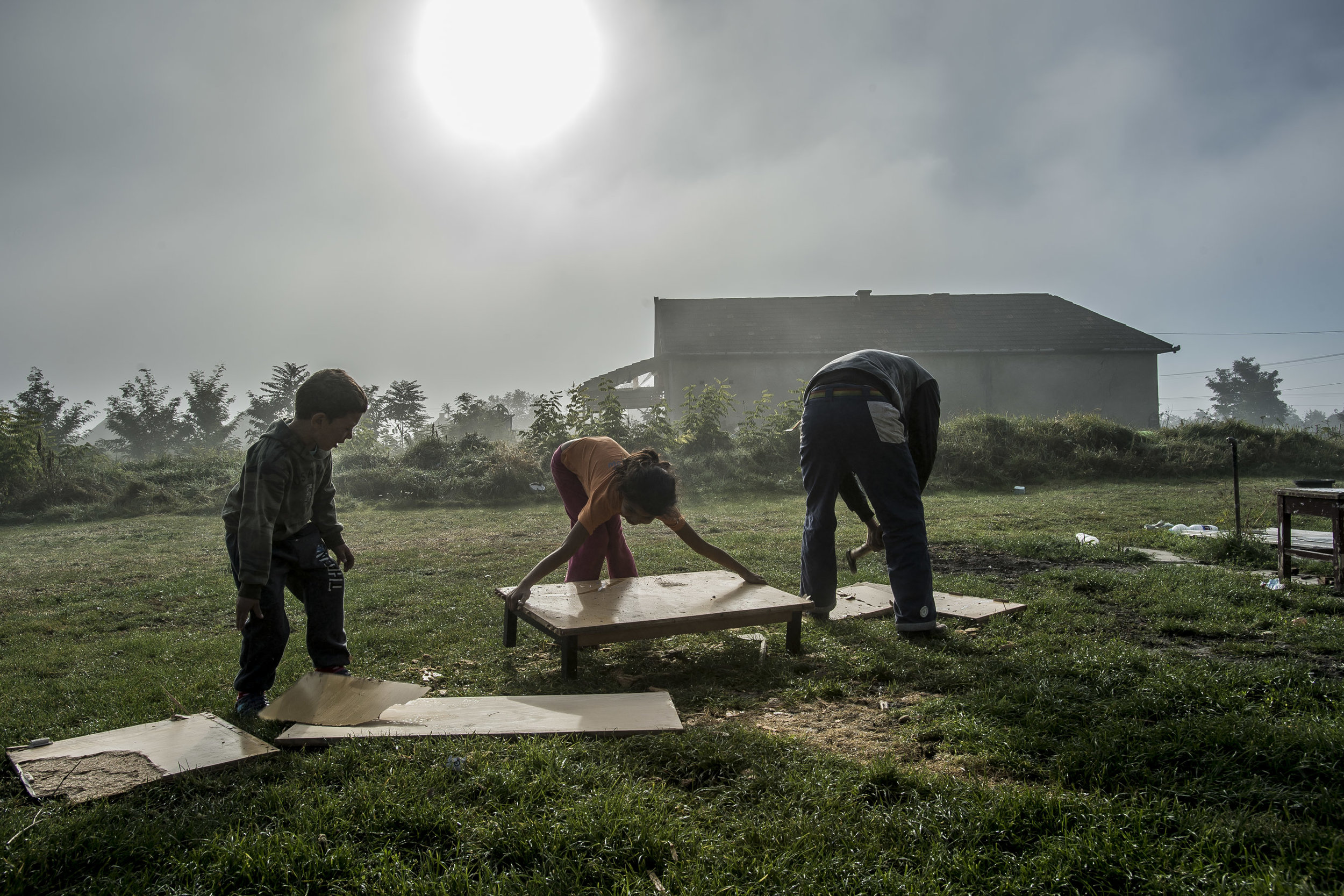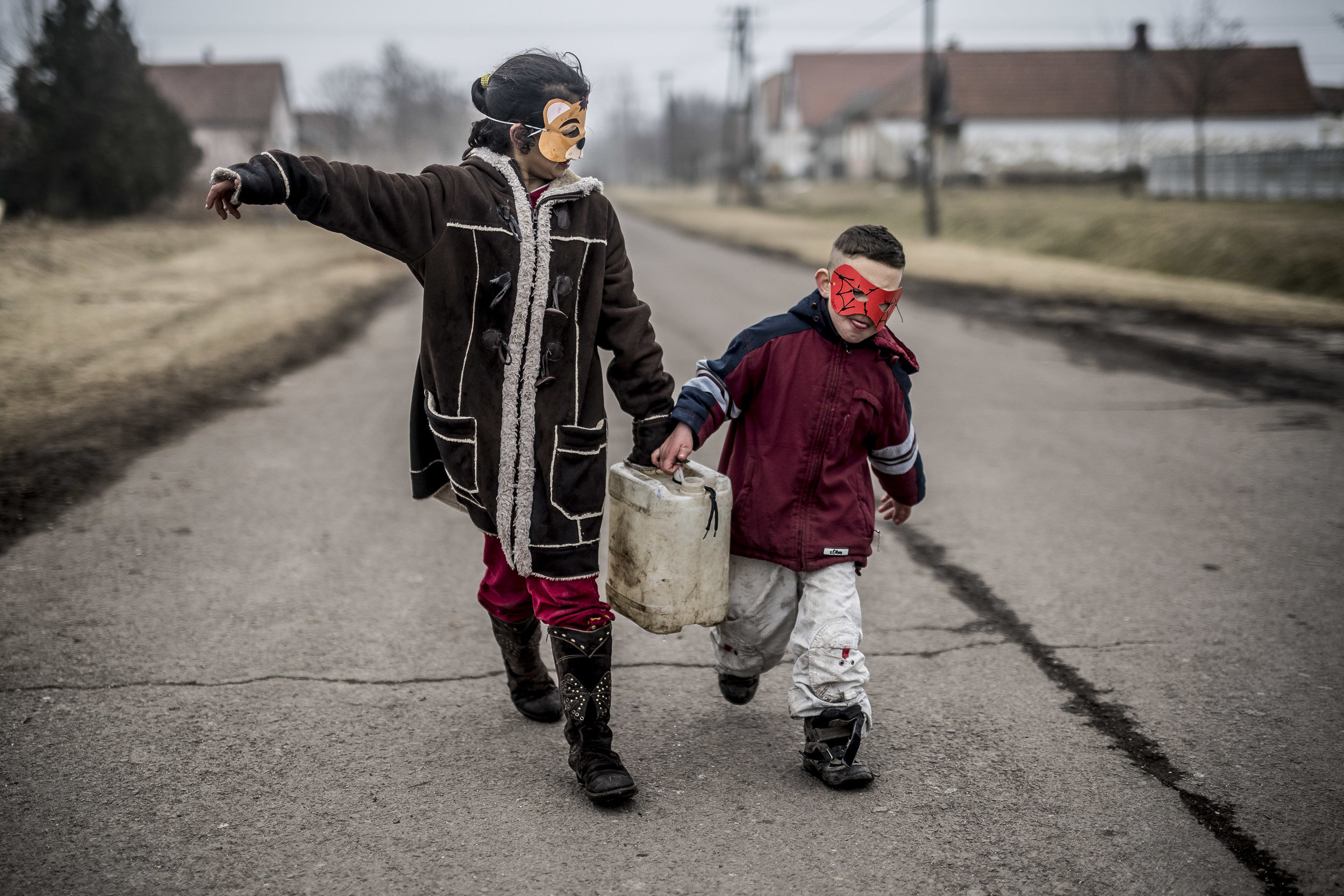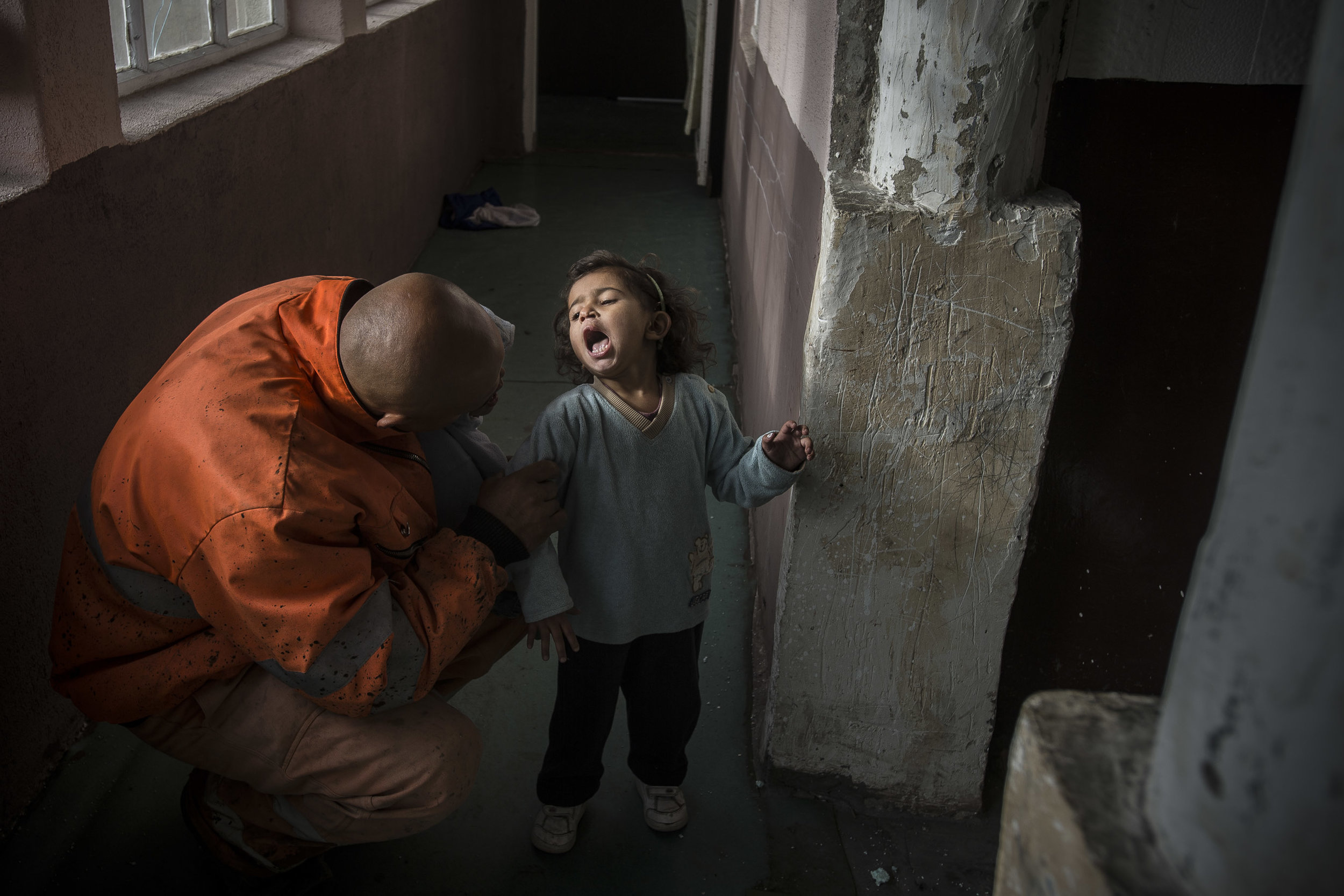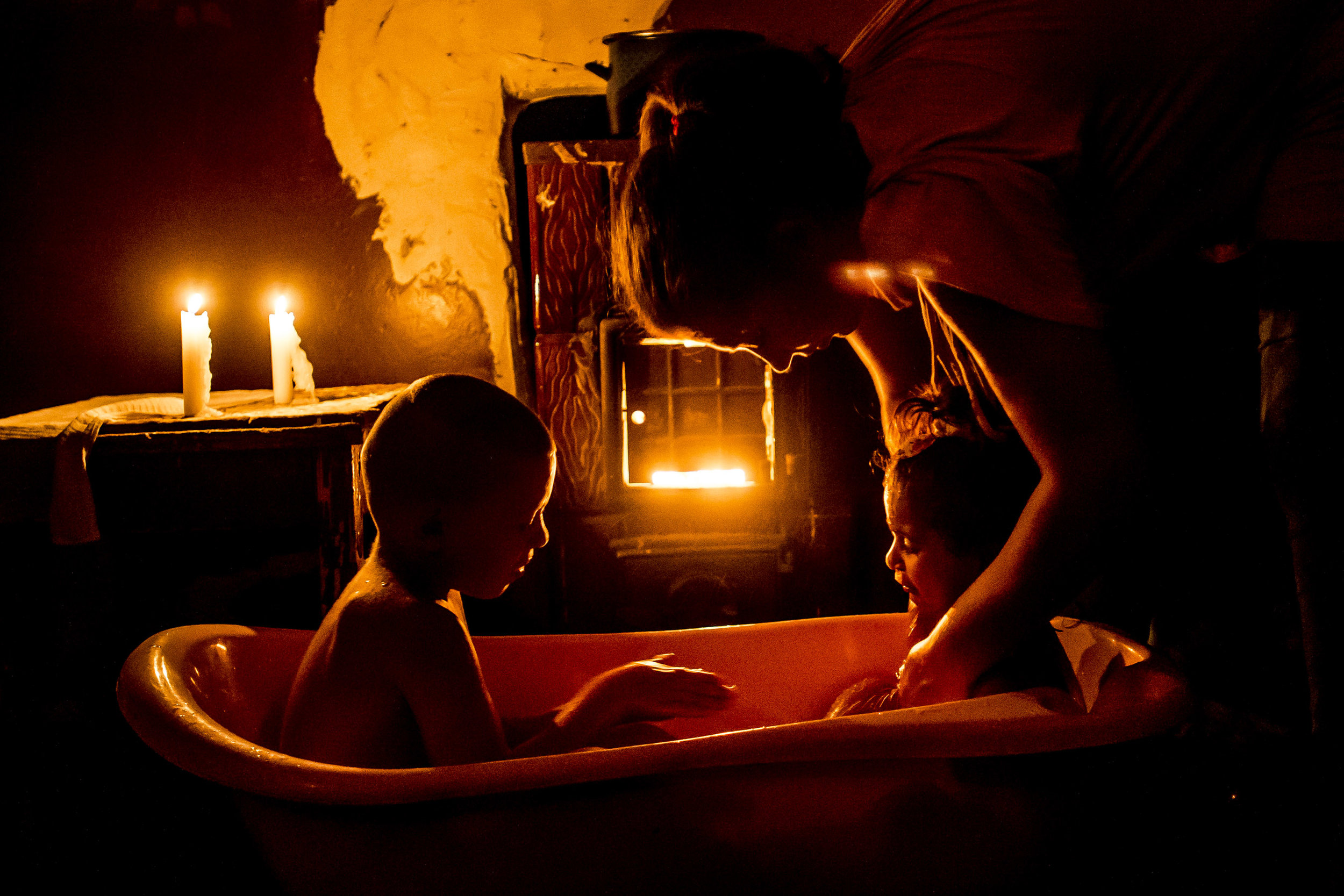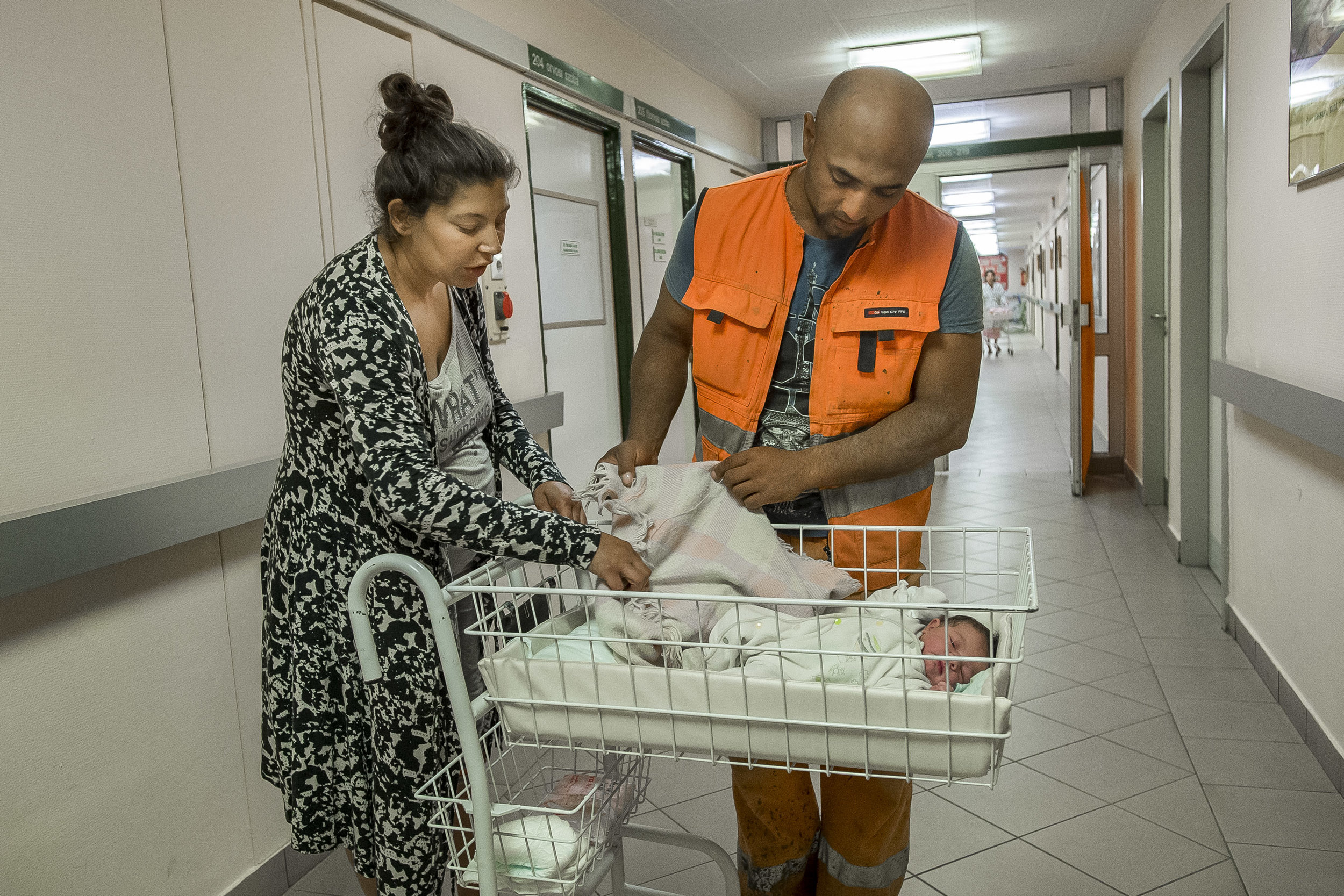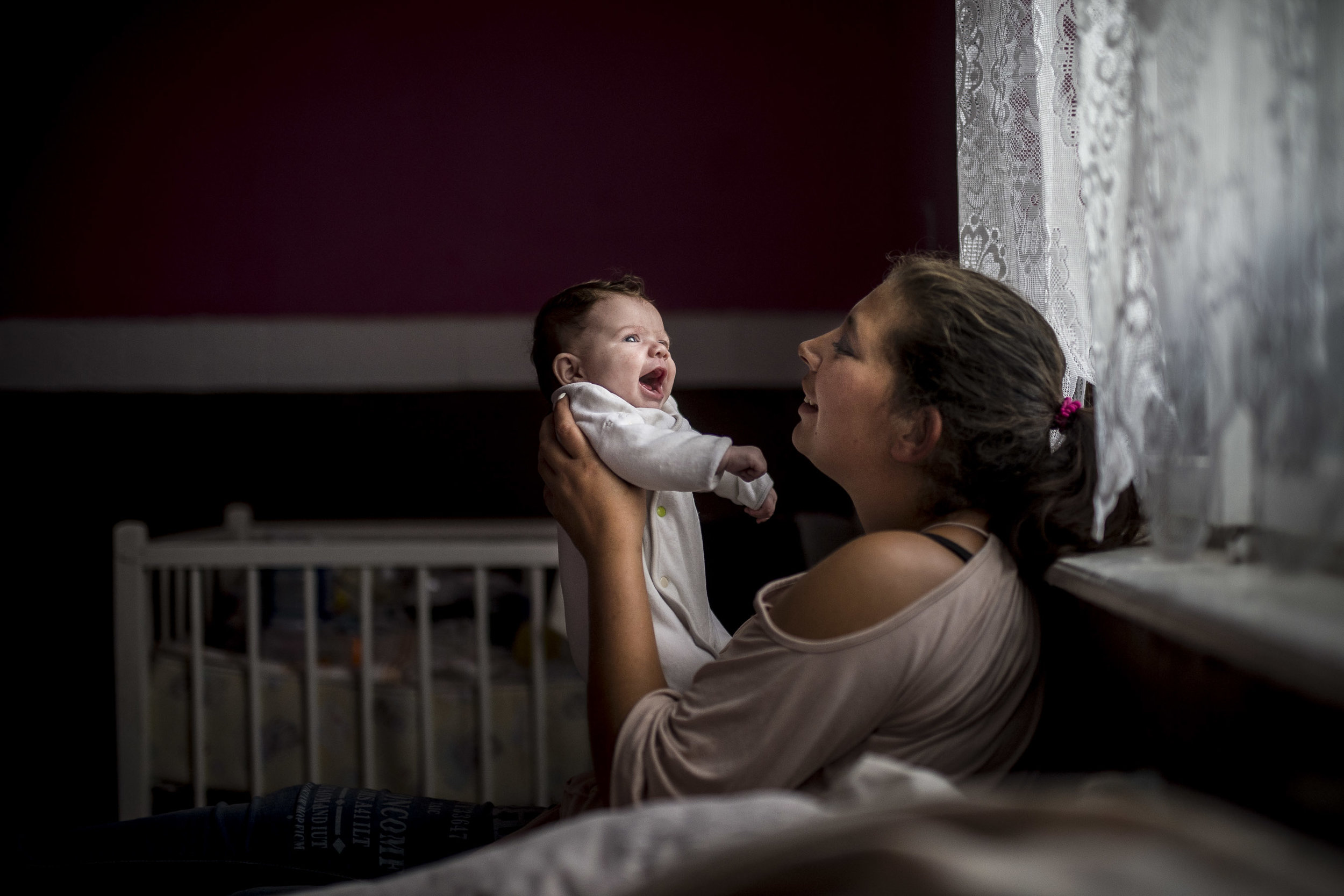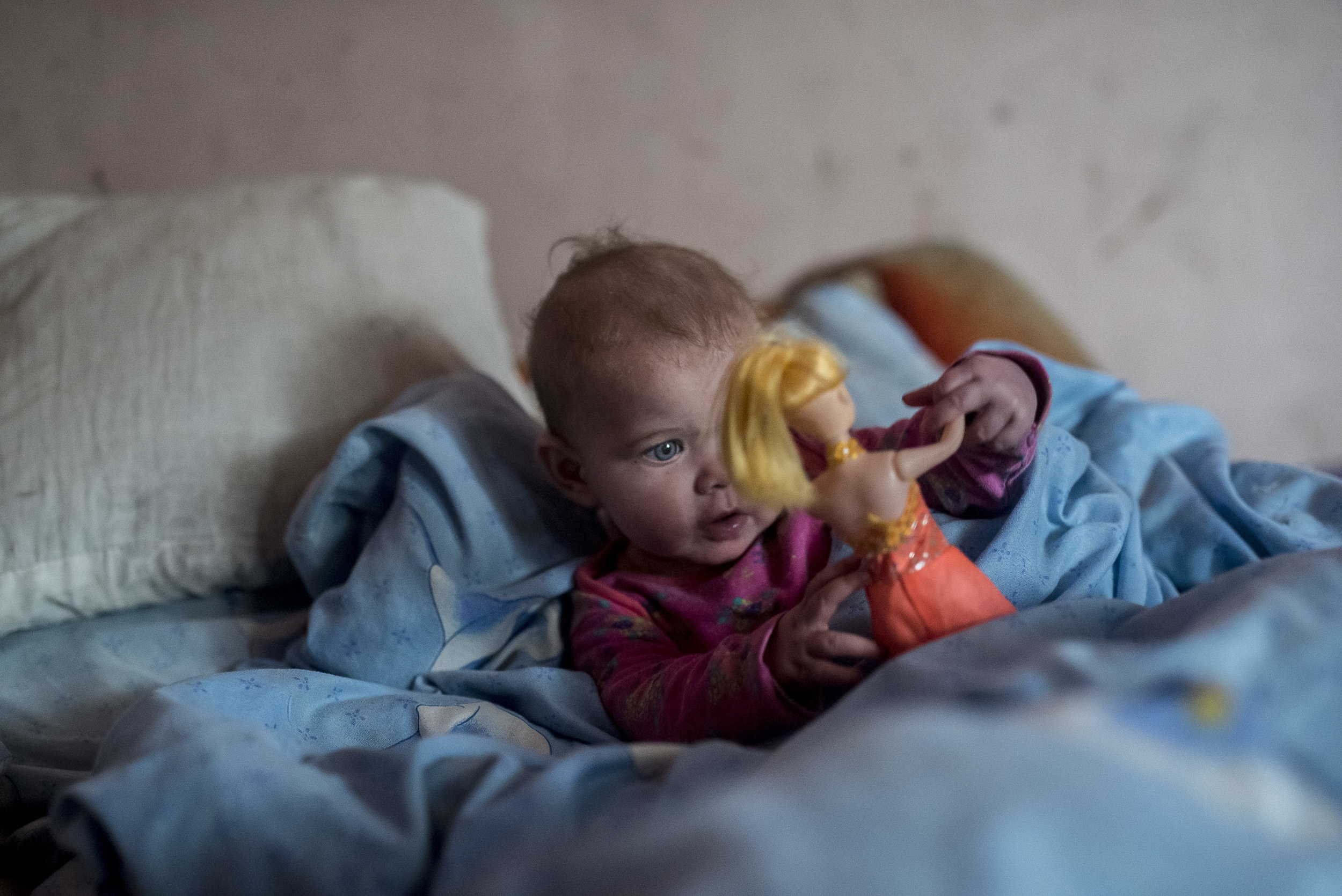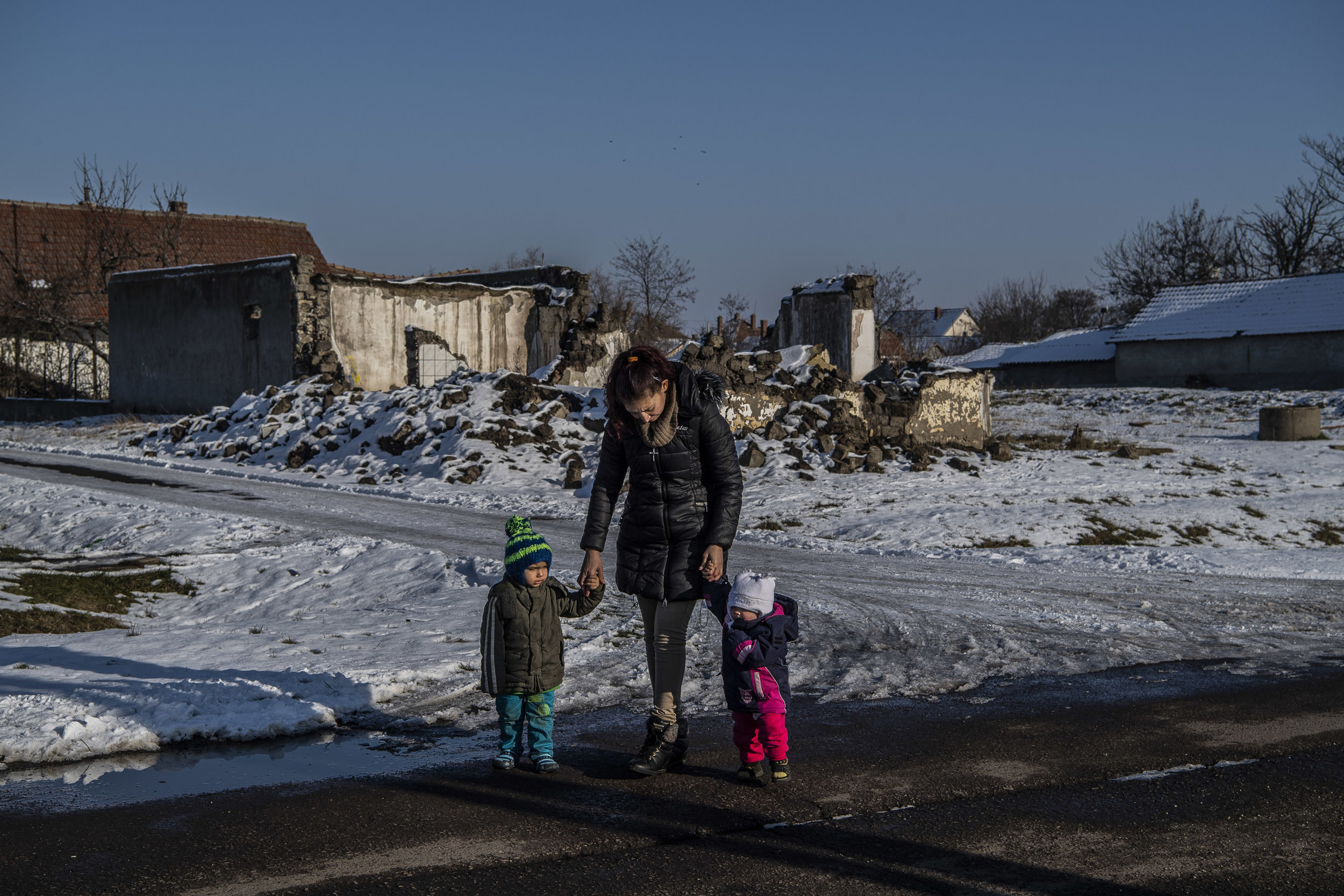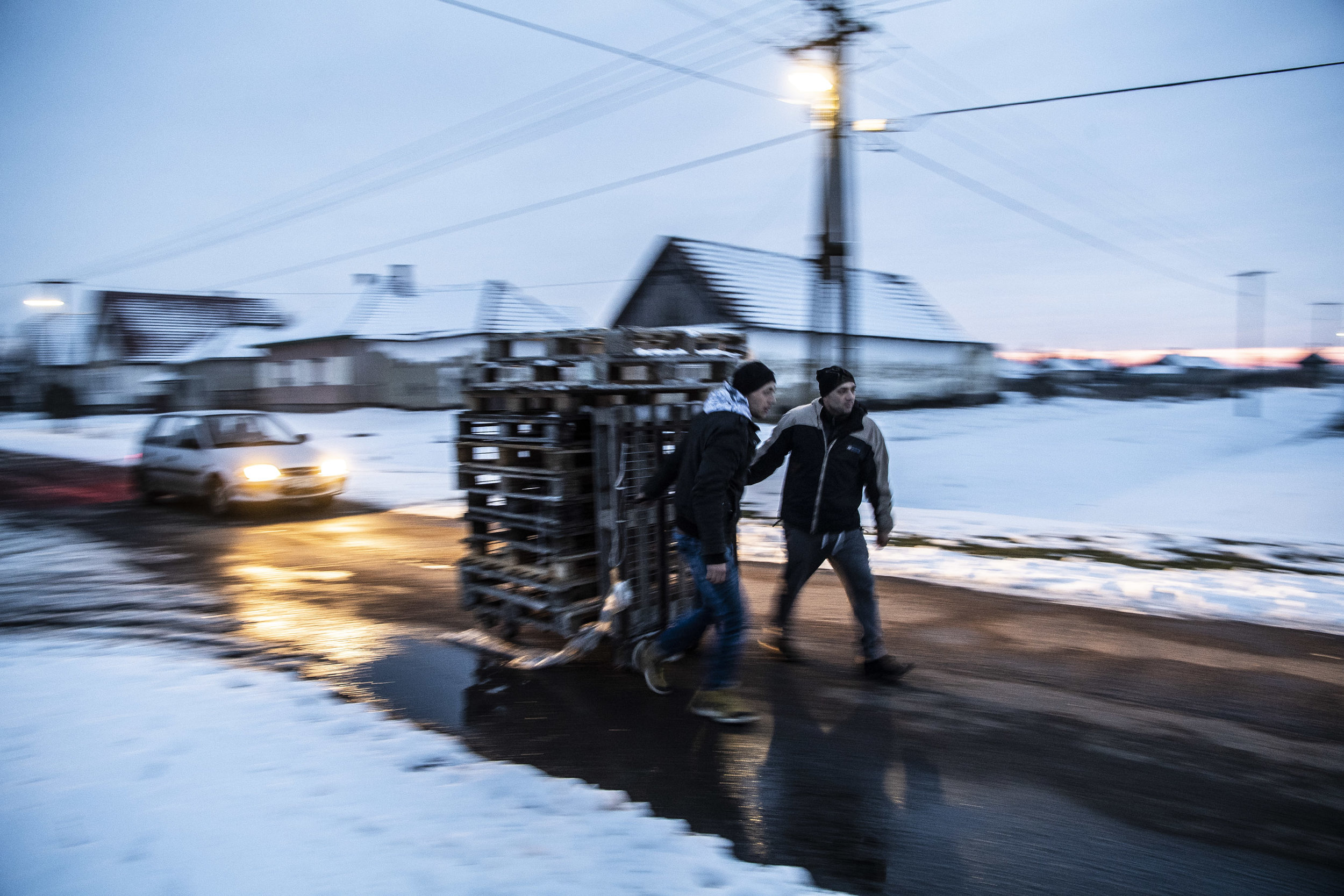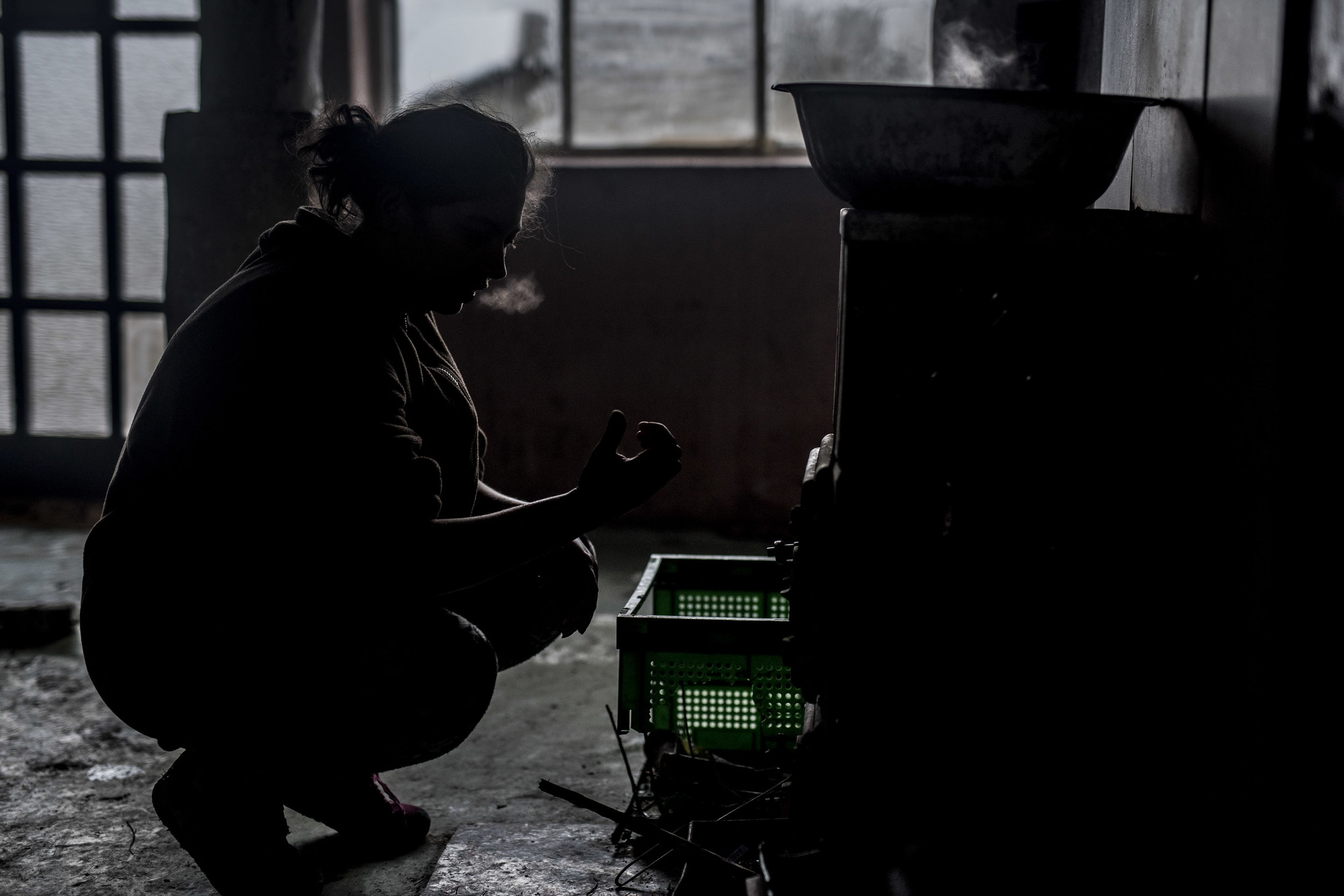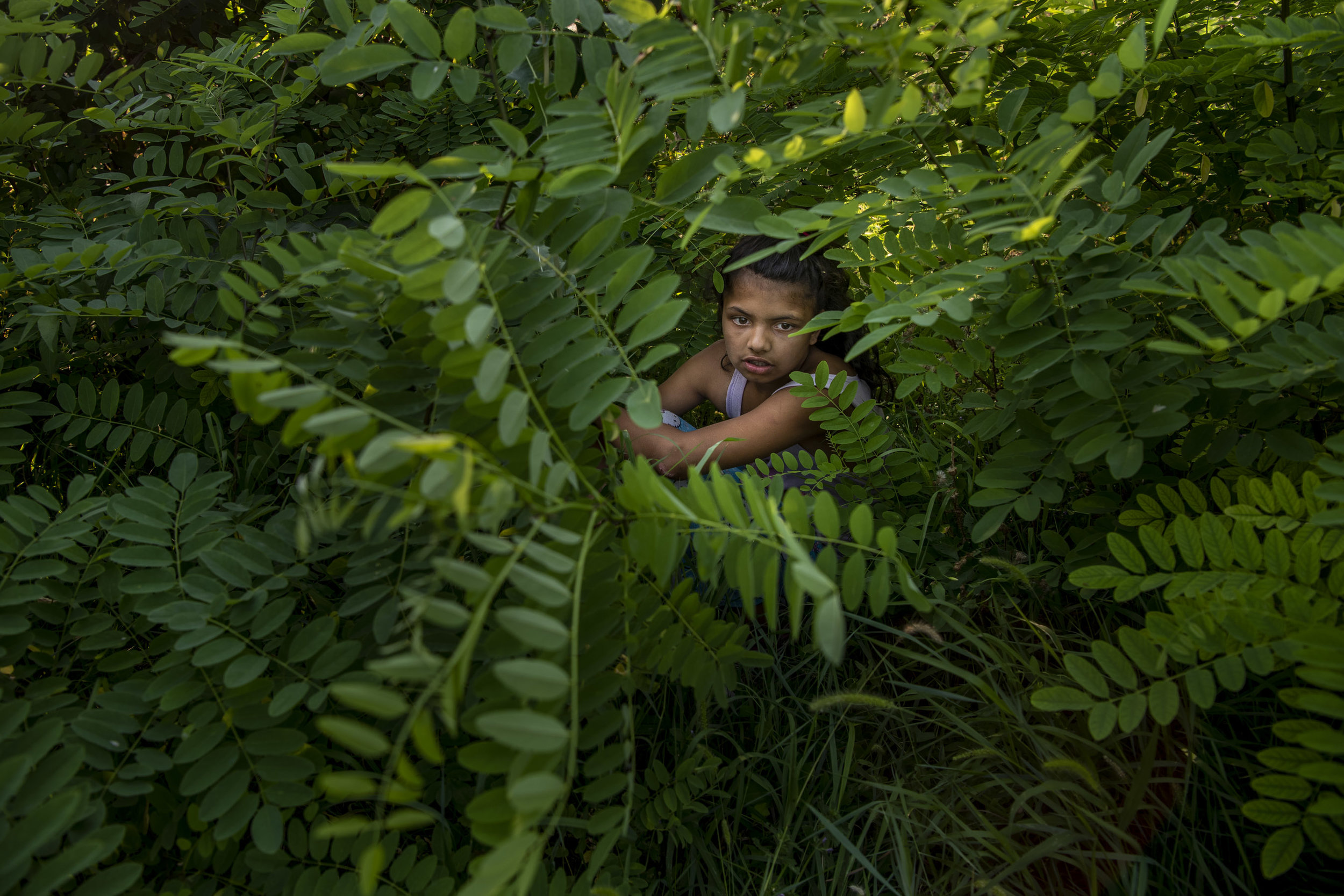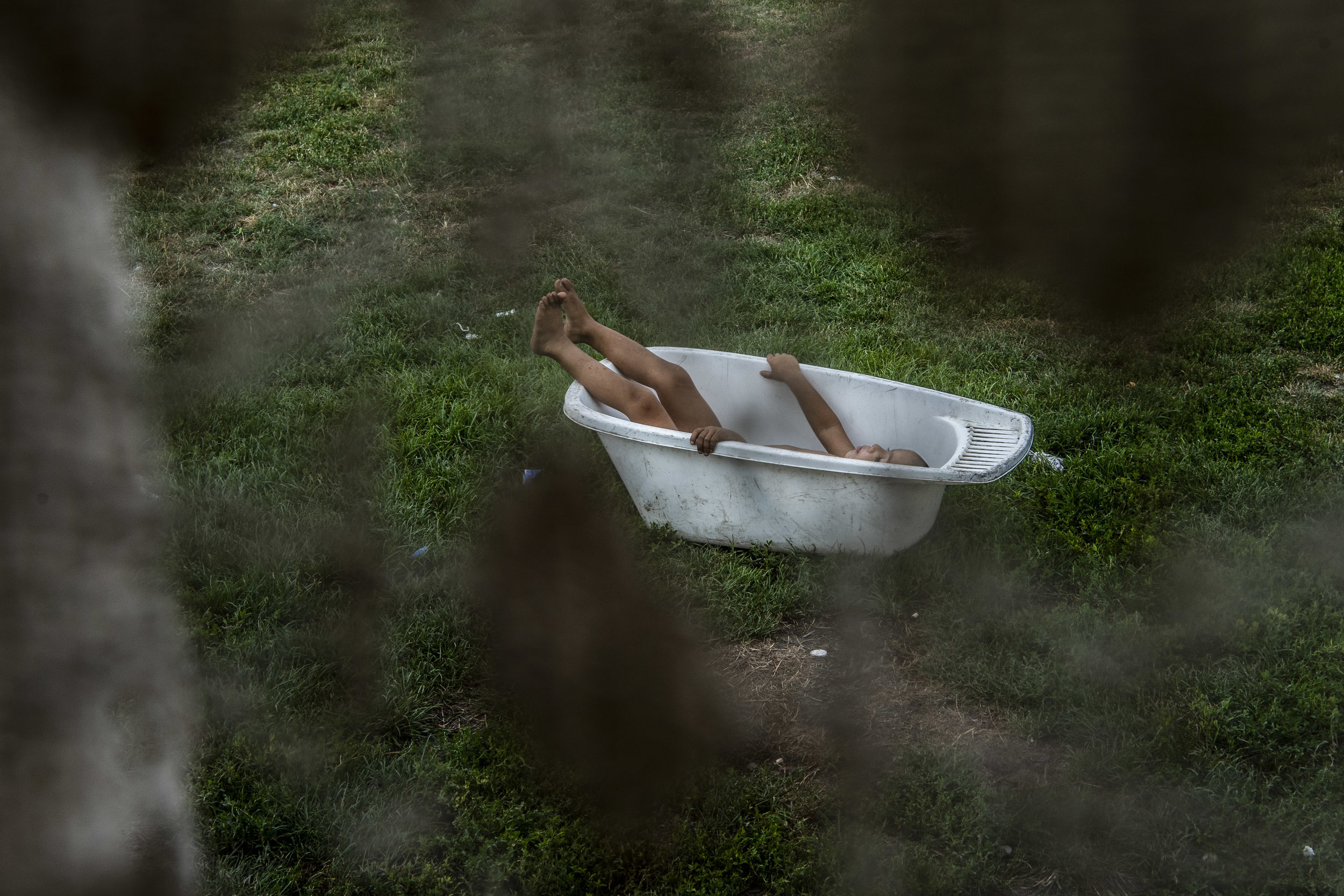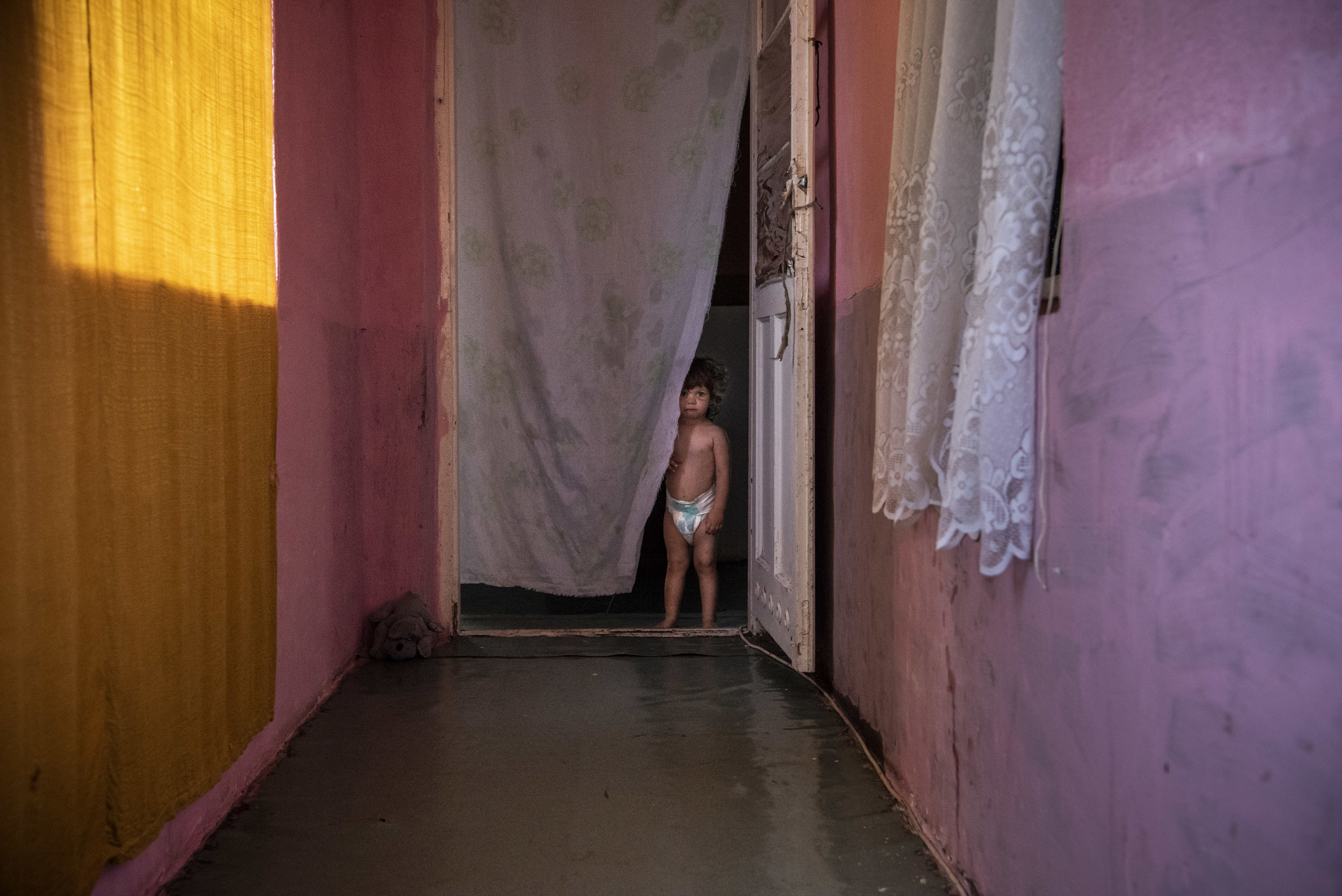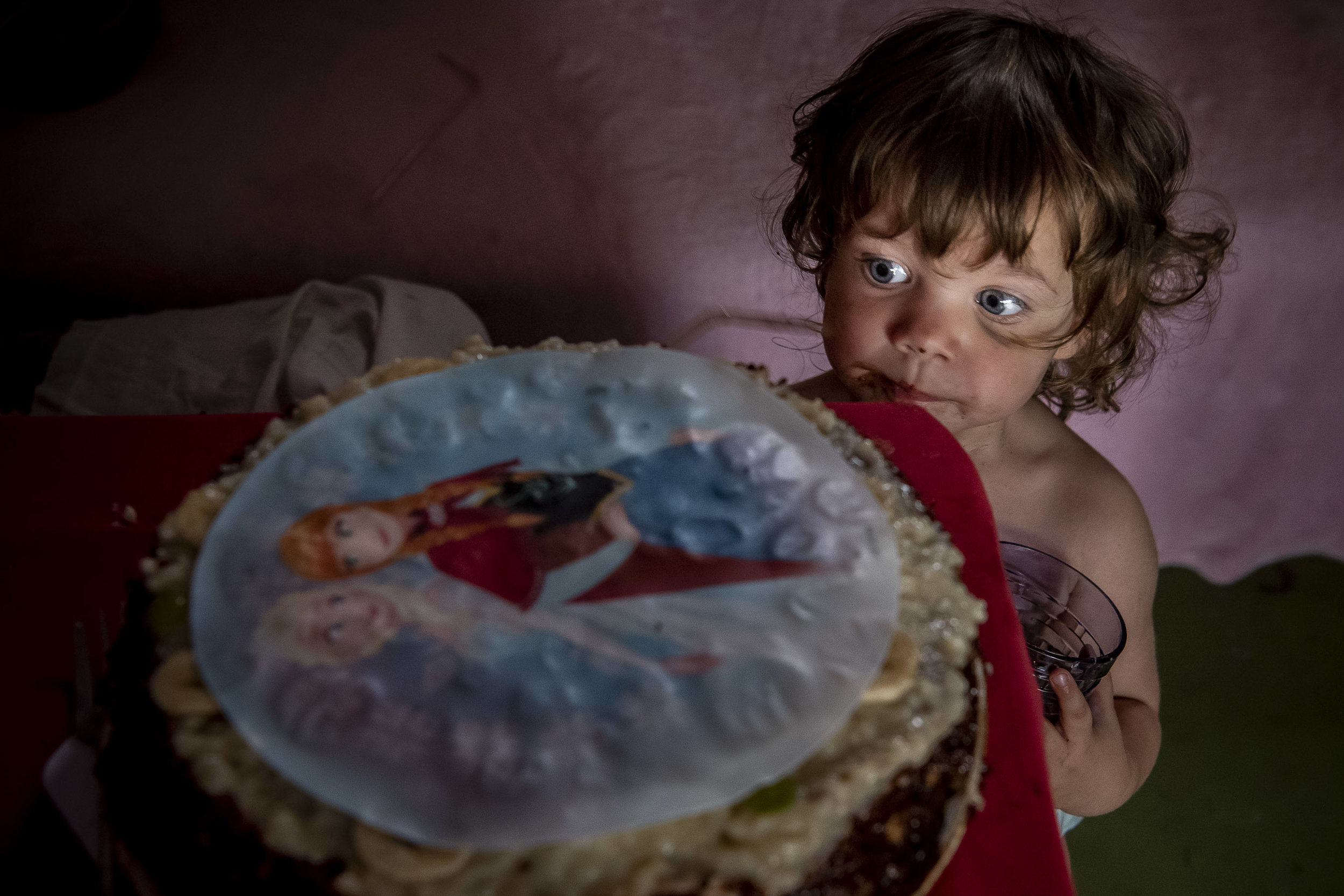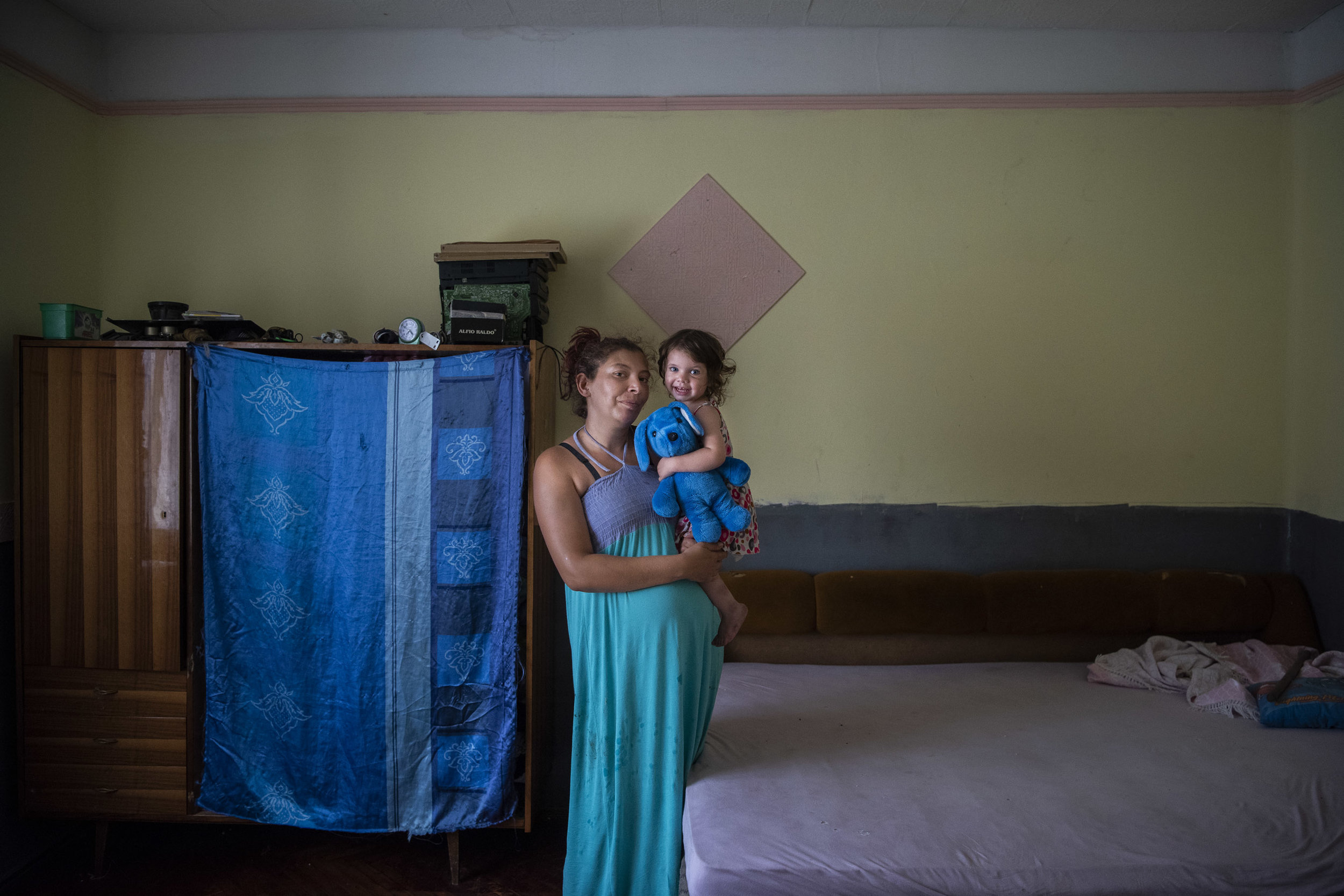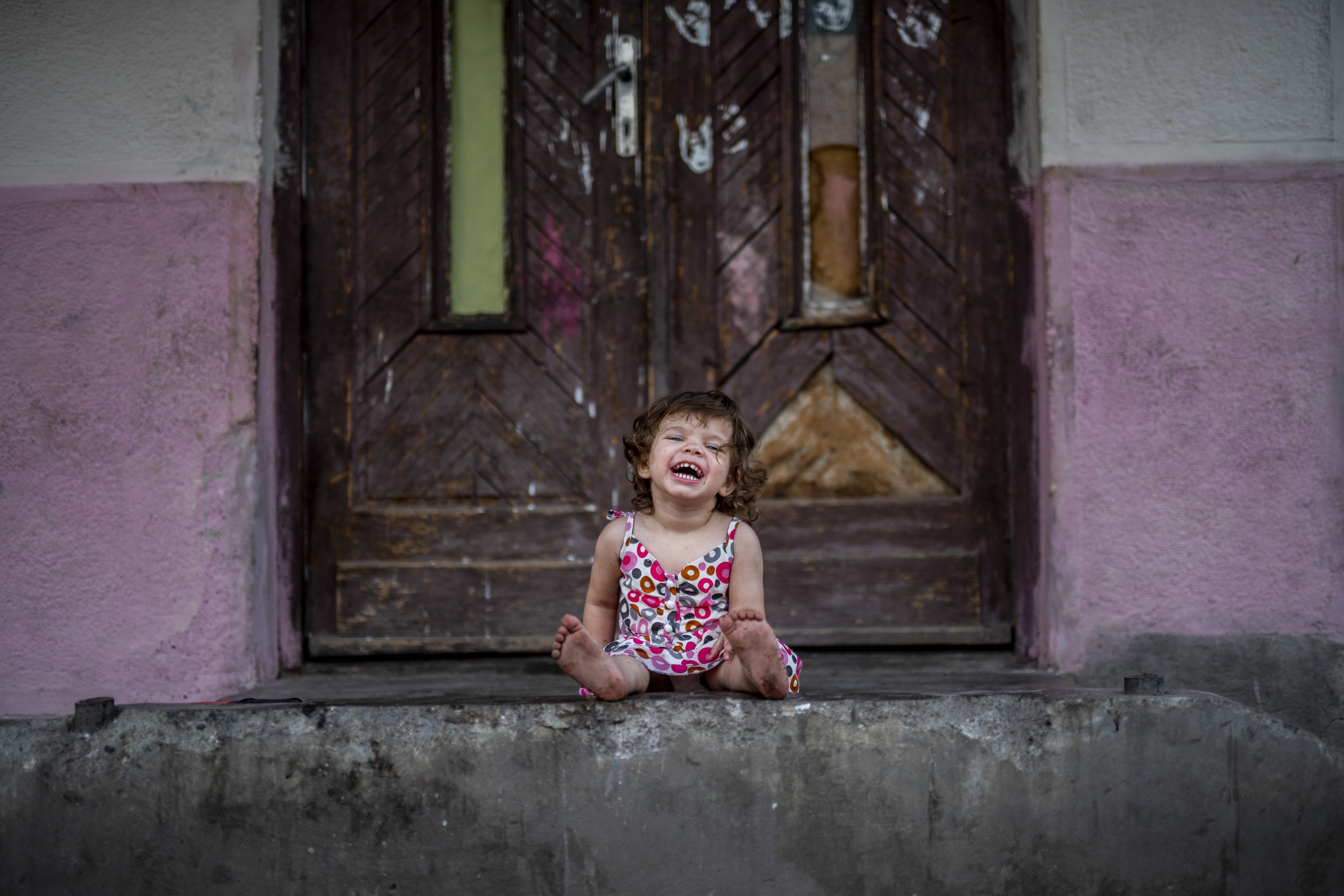“If God is at work in a family’s life, then they can achieve anything, even from the bottom of a pit.”
I got to know Viki and Joka in the summer of 2016. As a stranger I knocked on their door, and after talking for a couple of hours I had a strange feeling of déjà vu: I know their lives, their problems, and I know them too, I thought. They are part of that great conglomeration which sociologists label as “living in extreme poverty”, and at best the general public just call them “penniless Gypsies”.
I have been travelling in the Hungarian countryside for almost a decade now, I am familiar with the struggles of families living in extreme poverty. It is difficult to present these situations authentically, because beyond the stereotypes they can be very complex.
There is one dynamic in summer when there is day labour, and an opposite one when heading for winter with a new-born and working community service. As photographer I have to be with the family at special celebrations, in daily life, when collecting family allowance at the beginning of the month, and scraping the pennies together for a loaf of bread at the end.
Reports on needy families appear frequently, but these are mainly snapshots, frozen moments, instead of exhibiting a whole process in broader perspective from an internal viewpoint. But just as the characters are developed in a novel, so that later we may understand the motives, choices and fate of the players, it is also important to present family members and their journey in a similar way in a photo essay.
Their house has no running water, so they fetch water from the nearby well. Here Virág and Szabi are carrying a ten litre jerrican from the well, wearing the carnival masks they have made in school, or nursery school.
Viki putting on makeup in preparation for the church service, with Leila in the yard.
They became Christians in 2014, since then Joka has been like a different person. He has given up his old, messed-up life, he works and spends time with the children. Over the last two years has he only been at home during the day if Viki needed help, as with so many children it is impossible to get to a hospital appointment, for example. The grandparents also work, so they cannot get help from there.
When we first met in 2016, Viki was expecting her seventh child at the age of 26. We agreed that I would follow the little girl to be born, Szófia Loretta Bordács, as she grew up – as if producing a visual family saga. I thought that the Bordács family story clearly reflected the situation affecting many thousands of families in Hungary when the socialist industry was dismantled following the political changes: total vulnerability.
Given was a Romany family with lots of children and one wage earner, in a poor little Heves County village. The electricity had been switched off from their house years before we met, because they stole it, and there was no running water either, because they fell behind with payments. The head of the house was always in work, but the six thousand forints a day wage only covered their daily basic needs.
We spent the last two years getting acquainted; during this time I also documented a few moments from their lives with photos.
Viki heating bathwater in their frosty kitchen
In October they chop up the first furniture with an axe, so they can heat the house.
Józsi and Viki’s brother bringing home some pallet from the company Józsi works for.
Szófia Loretta Bordács was born in Eger Hospital on 9 August 2016, in good health. Józsi could only get to the hospital the next evening, in the end his boss took him to the hospital after work, just as he was in work clothes, as he would not have been able to get home by bus.
Szofi was born blond, with blue eyes and light skin just like her brother Szabolcs, so Viki holds out more hope for the two of them. Viki thinks they may have a chance to get ahead in this country.
Viki walking with Szabi and Szofi in Tiszanána.
Szofi was two on 9 August 2018, and on her second birthday I started the chapter Weekdays, in which I present the everyday life of the family in detail over the course of a year. Szofi is in focus in the series, but all family members and angles which affect the girl’s life will be a part of it.
In preparation for the year ahead, they are full of plans and expectations. Viki is pregnant again, expecting her eighth child in October. Józsi is saving for a driving licence, thinking about animal breeding, and wants to recruit his own gang in order to double his present income. Without this, “breaking out” is impossible for them. But will they be successful, when things hardly work out for one family in a hundred in a similar situation? Will what Józsi said come true, that God will help them out of the bottom of the pit?
The series won the Robert Capa Scholarship in 2018. According to the rules of the scholarship, it is not allowed to publish my recent pictures until 2019 October 21.












